Judge rules in favor of Sand Creek area developer striking down almost all of Measure T, long-planned homes can be built in Antioch
Tuesday, June 22nd, 2021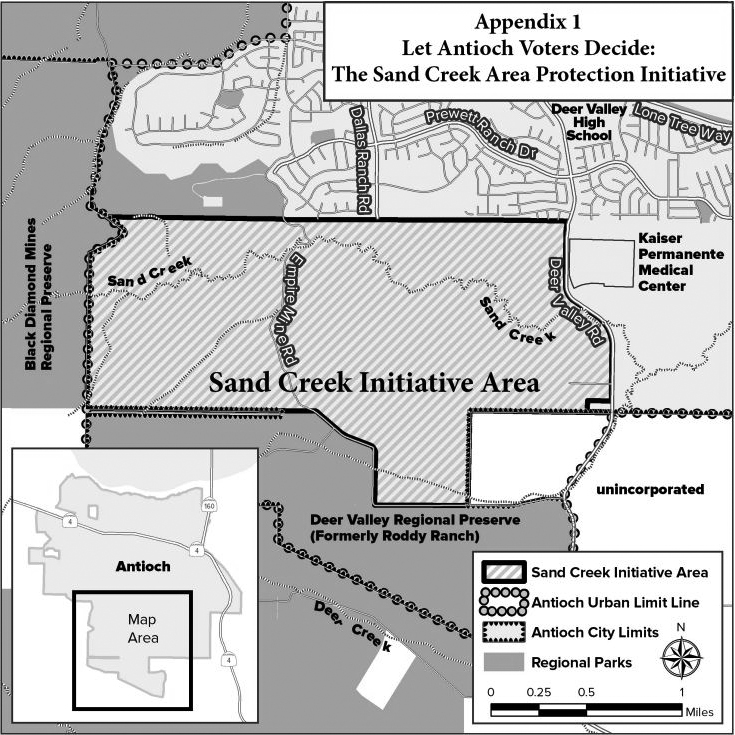
The Let Antioch Voters Decide: The Sand Creek Area Protection Initiative known as Measure T on the November 2020 ballot cannot be implemented.
Environmentalists claim victory with Urban Limit Line extension
By Allen Payton
In what amounts to a final blow to Antioch’s Measure T and the environmentalists’ efforts to stop the long-planned new home developments in the city’s Sand Creek area, on June 7, 2021, a Contra Costa Superior Court judge ruled in favor of Oak Hill Park Company in their lawsuit against the City of Antioch to prevent the council from implementing the provisions of the measure. The initiative’s full title was Let Antioch Voters Decide: The Sand Creek Area Protection Initiative (LAVD) and would have devalued Oak Hills’, Zeka Ranch’s and other neighboring property owners’ land by over 98%, downzoning it from two homes per acre to just one home per 80 acres. Measure T Statement of Decision 060721
In his tentative ruling on June 2, 2021, Judge Edward G. Weil wrote, “The Court finds that the LAVD Initiative, with the exception of Section 22, conflicts with the Housing Crisis Act and is therefore void. The Court further finds that, with the exception of Section 22, the individual provisions of the LAVD Initiative are not volitionally severable. The Court finds that Section 22 is valid and enforceable.” 2021-06-02 Tentative Ruling of Oak Hill
That meant that other than Section 22, none of the other sections of the measure could be separated from the rest of the initiative and applied on their own. The Housing Crisis Act, known as SB330, which was signed into law on October 9, 2019 and went into effect on January 1, 2020, forbids cities from reducing the zoning of residential property until January 1, 2025, by either council action or citizen initiative.
Section 22 of the LAVD initiative reads, “The location of the Urban Limit Line enacted in Antioch Measure K on November 8, 2005, may be changed only by the voters.”
According to Weil’s final ruling, Section 1 of the LAVD Initiative identifies the following as two of the seven primary purposes of the Initiative: “maintains the existing urban limit line,” and “requires voter approval to change these safeguards.” In 2005, Antioch voters adopted Measure K establishing an Urban Limit Line. Under that measure, through December 31, 2020, only the voters could change the location of the Line. After that date, voter approval was not required. The measure’s language claimed, “maintaining voter approval beyond 2020 is in the best interests of Antioch residents.”
Had the judge not ruled in favor of severability of Section 22, the city council would have had the power to move the line from the current location, along the ridgeline on the back side of the former Roddy Ranch Golf Course. However, that part of the judge’s decision has no impact on the proposed developments in the Sand Creek area.
Save Mount Diablo Claims Victory on Urban Limit Line
In a press release by Save Mount Diablo on June 15, announcing the judge’s decision, the organization claimed a victory over the section about the Urban Limit Line. Measure T requires a vote of the people to change the boundaries. That is the only section of the measure the judge allowed to stand.
The group’s press release reads in part:
—————————-
On June 7, 2021, Contra Costa Superior Court ruled on a legal challenge to Measure T, the “Let Antioch Voters Decide” initiative. Measure T was approved by 79 percent of Antioch voters in November 2020. The legal challenge, OAK HILL PARK CO. VS. THE CITY OF ANTIOCH, was filed by out-of-state developer Oak Hill Park LLC/Richfield in an attempt to strike down Measure T. Measure T included growth management provisions for the Sand Creek area in southeast Antioch and extended protections for the Antioch Urban Limit Line.
Part of Measure T was affirmed, and part was ruled in conflict with SB 330—a 2019 housing crisis law enacted after Measure T was qualified in 2018 but before the public voted in November 2020.
“Save Mount Diablo, the Antioch community, and our other good partners have been working to defend and protect the important open spaces of the Sand Creek Focus Area for years against various developers and lawsuits. This past November, 79 percent of Antioch voters approved our Measure T to give the Sand Creek area more protections,” said Ted Clement, Save Mount Diablo’s Executive Director. “In the recent court ruling, our efforts were successful in saving the Antioch Urban Limit Line, which affords protections to Sand Creek, but other parts of Measure T were struck down. We are also proud that our Measure T gave Antioch voters a voice to express their clear desire that Sand Creek have more protections, and we hope Antioch officials will respect the overwhelming will of the people.”
After the election, in February 2021 Oak Hill Park LLC/Richfield once again challenged Measure T, based in part on SB 330. The state passed Senate Bill 330, the Housing Crisis Act of 2019, after the 2018 qualification of Measure T but before the November election. SB 330 established new rules about what initiatives and local jurisdictions can do to affect housing.
The court’s ruling finds that Measure T, with the exception of the provision extending the Urban Limit Line (ULL), conflicts with Senate Bill 330 and is therefore void. A requirement for a public vote for major development west of Kaiser Hospital and Deer Valley Road in the Sand Creek Focus Area, and a variety of development standards Measure T would have required, have been nullified.
However, the coalition’s efforts and Measure T saved the Antioch Urban Limit Line. The court preserved Measure T’s extension of Antioch’s Urban Limit Line, and the requirement that any changes to the Urban Limit Line must be approved by the voters. Without Measure T’s approval in November 2020, that voter approval requirement would have expired on December 31, 2020.
“Our coalition educated Antioch residents about the Sand Creek and Empire Mine Road area,” said Seth Adams, Save Mount Diablo’s Land Conservation Director. “We saved the Antioch Urban Limit Line, built a strong grassroots coalition, established greater concern within the city council about the Sand Creek area, and received a very strong 79 percent election result of public support to help with the next steps. We’re in this for the long run. The work continues. We will oppose Zeka and Richfield, defend Black Diamond Mines Regional Preserve and Deer Valley Regional Park, and work to ensure that more of the Sand Creek area is protected.”
What Is SB 330?
SB 330 was signed into law by Governor Newsom in October 2019. It’s designed to speed up housing construction in California during the next half-decade by slashing the time it takes to obtain building permits, limiting fee increases on housing applications, and barring local governments from reducing the number of homes that can be built. Although it’s meant to encourage affordable housing, Antioch already provides more affordable housing than most cities.
The Antioch coalition qualified our initiative, and the Antioch City Council adopted it, long before SB 330 was signed into law. It was only because of lawsuits from developers Zeka Group and Oak Hill Park LLC/Richfield that our initiative was delayed until a judge sent our initiative to the November 2020 ballot, where we won in a 79 percent landslide. But by then, SB 330 had been signed.
Because of all this, we’ve known that some parts of Measure T might be struck down in court, and other parts might be “severed” and survive. Based on the court’s tentative ruling, that’s what’s happened.
Summary
Measure T has saved the Antioch Urban Limit Line. However, the rest of the initiative was struck down.
—————–
No Decision on Possible Appeal
Asked if Save Mount Diablo planned to appeal the judge’s decision, Adams responded, “No decision has been made. Can’t say at this point.”
City Council Discusses Lawsuit
During a special Conference with Legal Counsel on Tuesday, June 22, 2021, the Antioch City Council discussed the case of Oak Hill Park Company, vs. the City of Antioch, Contra Costa County Superior Court, Case No. N21-0048.
However, City Attorney Thomas Lloyd Smith said, “There was no reportable action on the item.”
Oak Hill Park Company Responds
In response to their lawsuit victory, Oak Hill Park Company’s attorney, Alicia Guerra, issued the following statement: “Oak Hill Park Company appreciates the Court’s thoughtful ruling invalidating almost every provision of the Initiative under the Housing Crisis Act, and looks forward to working with the City in the future.”
Oak Hill plans a 370-home project known as Bridle Hills, south of the 1,177-home The Ranch project approved by the city council, last year. The neighboring 338-home project, known as Zeka Ranch is planned for 200 of the 640 acres of the former Higgins Ranch property located on the closed Empire Mine Road, adjacent to the Black Diamond Mines Regional Preserve.
History of Sand Creek Area and Urban Limit Line
Plans for new homes in the Sand Creek area, formerly known as Future Urban Area-1 (FUA-1), have been underway since developers purchased the land in the 1990’s following voter adoption of the county-wide Urban Limit Line (ULL) in 1990, protecting 65% of the land in the county from subdivision development. In 2003, the Antioch City Council reduced the total number of homes allowed in the Sand Creek area from over 8,900 to 4,000. Of that figure, approximately 877 homes remain to be approved and built west of Deer Valley Road, which is the area the initiative would have affected. Another 640 homes planned for the Roddy Ranch development will no longer be built since that land was sold by Jack Roddy and his partners to the East Bay Regional Parks District several years ago, and is currently referred to as Deer Valley Regional Park.
In 2006 County voters passed Measure L, which extended the term of the ULL through 2026 and required a 2016 review to determine whether enough capacity existed inside the ULL to accommodate jobs and housing growth through 2036. The location of the county’s line matches that of the City of Antioch’s ULL.









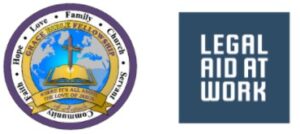 Legal Aid at Work and Grace Bible Fellowship of Antioch are pleased to announce the launch of Legal Aid at Work’s newest location of the
Legal Aid at Work and Grace Bible Fellowship of Antioch are pleased to announce the launch of Legal Aid at Work’s newest location of the 
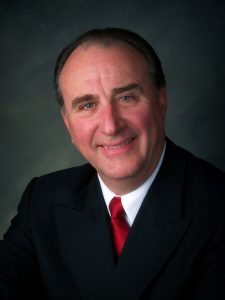
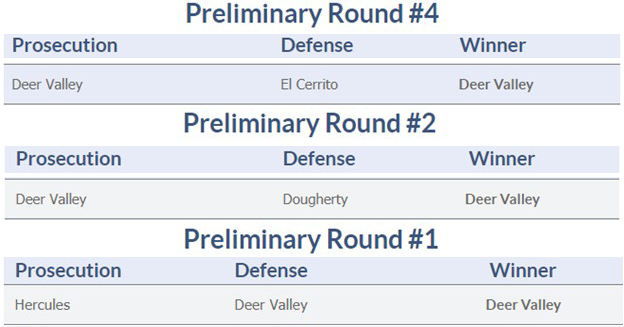
 Now that it’s tax season, and tax forms are arriving in the mail, many people are beginning to find a nasty surprise in their mailbox: an IRS form 1099-G reporting unemployment benefit income that they did not actually apply for or receive.
Now that it’s tax season, and tax forms are arriving in the mail, many people are beginning to find a nasty surprise in their mailbox: an IRS form 1099-G reporting unemployment benefit income that they did not actually apply for or receive.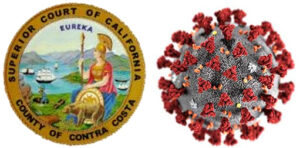 COVID-19 cases have spiked, resulting in a new stay-at-home order for the county effective this weekend. To limit the risk of COVID-19 transmission, the Court will enact a LIMITED COURT CLOSURE effective Monday, December 7, 2020, and until further notice.
COVID-19 cases have spiked, resulting in a new stay-at-home order for the county effective this weekend. To limit the risk of COVID-19 transmission, the Court will enact a LIMITED COURT CLOSURE effective Monday, December 7, 2020, and until further notice. Following
Following 










